Election 2012: Sierra Club political endorsements
Hotly contested seats
These candidates and their Southern California districts will be particularly important in the Nov. 6 election. Check out all of the Angeles Chapter's candidate and ballot endorsements.
State Assembly
Edwin "Ed Chau"
Assembly District 49
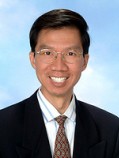 Ed Chau is committed to addressing the environmental challenges facing the San Gabriel Valley. As a 12-year member of the Montebello School Board, he has been instrumental in replacing diesel school buses wiht CNG fule efficient buses and has helped institute recylcing programs throughout the district. He promoted a student-based project which resulted in planting 200 trees. Ed Chau has been part of the Green Team exploring environmental issues facing the district. They are now preparing to install solar panels on district buildings.
Ed Chau is committed to addressing the environmental challenges facing the San Gabriel Valley. As a 12-year member of the Montebello School Board, he has been instrumental in replacing diesel school buses wiht CNG fule efficient buses and has helped institute recylcing programs throughout the district. He promoted a student-based project which resulted in planting 200 trees. Ed Chau has been part of the Green Team exploring environmental issues facing the district. They are now preparing to install solar panels on district buildings.
Ed Chau has been an attorney for the past 17 years and for the past 10 years has served as Judge Pro Tem for the Los Angels Superior Court.
Betsy Butler
Assembly District 50
 Despite her relatively short tenure in the California State legislature, Betsy Butler has proven herself to be a real leader on environmental issues in the State Assembly and the Sierra Club strongly supports her re-election.
Despite her relatively short tenure in the California State legislature, Betsy Butler has proven herself to be a real leader on environmental issues in the State Assembly and the Sierra Club strongly supports her re-election.
Butler was able to take her long-time involvement in environmental affairs to quickly work on critical legislation that will have a significant impact on the future of California. Her commitment to working on environmental issues spans her entire career, which includes the time she spent working for the California League of Conservation Voters and the Environmental Defense Fund. During this time, she helped create communities of support for strategic environmental movements, including carbon emission standard changes, water conservation and habitat protection policies.
In her first year in office, she was the author of bills such as the Toxin-Free Infants and Toddler Act, signed by Governor Jerry Brown in October 2011, which bans the use of Bisphenol-A (BPA) in baby bottles and sippy cups. By enacting this important new law, California has taken a vital first step to protect babies and toddlers from the harmful health effects of BPA. In addition to the ban on BPA, one of the other bills she authored and was signed into law by the Governor in her first year in office included a bill to expand electric vehicle infrastructure.
In 2012, she continued to work on critical legislation advocating for our the environment and the working men and women of California. Earlier this year, she introduced the Farm Worker Safety Act of 2012, which will ensure our farm workers have access to shade and clean drinking water.
Jimmy Gomez
51st Assembly District
 The 51st Assembly District has been moved in the redistricting plan. Much of it now resides in Assembly District 62, which is represented by Steven Bradford. The new 51st includes Angeleno Heights, Chinatown, Cypress Park, East L.A., Echo Park, Eagle Rock, El Sereno, Elysian Park, Glassell Park, Highland Park, City Terrace, University Hills (Cal State L.A.), Olvera Street and Dodger Stadium.
The 51st Assembly District has been moved in the redistricting plan. Much of it now resides in Assembly District 62, which is represented by Steven Bradford. The new 51st includes Angeleno Heights, Chinatown, Cypress Park, East L.A., Echo Park, Eagle Rock, El Sereno, Elysian Park, Glassell Park, Highland Park, City Terrace, University Hills (Cal State L.A.), Olvera Street and Dodger Stadium.
Jimmy Gomez received a bachelor’s degree in Political Science from UCLA and a master’s in public policy from Harvard. During his time at UCLA, he served as a representative for Mike Feuer, working with community groups on protecting remaining open space. While at Harvard, Gomez worked for then Congresswoman Hilda Solis, current Secretary of Labor in the Obama administration. Currently Gomez is political director of the United Nurses Assn. and has been endorsed by the California Labor Federation.
Gomez anticipates that open space, air quality, and toxics and contaminated land will be the three main environmental issues he will face as he represents his district in the state Legislature. He does not believe that CEQA is a barrier to economic growth. Instead he argues that “CEQA is one of those special sets of tools and laws that require and allow public input for land-use decisions. It is critical to the cause of environmental justice, helping us ensure that high-impact industries and toxics are not concentrated in communities of color or low-income communities.”
Gomez supports incentives for clean technologies and supports smart-growth practices: in-fill, transit-friendly development. He is opposed to the extension of the 710 Freeway because it will create more air pollution. He also opposes the water bond that will be on the November 2012 or later ballot because he perceives it as containing large giveaways to corporate special interests and not paying enough attention to water quality.
Sharon Quirk-Silva
Assembly District 65
 Sharon Quirk-Silva, candidate for California State Assembly representing the 65th Assembly District, currently serves as mayor of Fullerton. She has been elected twice to the Fullerton City Council (2004 and 2008), and both times was endorsed by the Sierra Club. In 2011, she was recognized as an Environmental Hero by the Angeles Chapter Political Committee for her votes against the development of Coyote Hills and her efforts to preserve the 500 acres of North Orange County’s last open space in Fullerton.
Sharon Quirk-Silva, candidate for California State Assembly representing the 65th Assembly District, currently serves as mayor of Fullerton. She has been elected twice to the Fullerton City Council (2004 and 2008), and both times was endorsed by the Sierra Club. In 2011, she was recognized as an Environmental Hero by the Angeles Chapter Political Committee for her votes against the development of Coyote Hills and her efforts to preserve the 500 acres of North Orange County’s last open space in Fullerton.
She chaired the Sustainable Communities Committee of the Southern California Association of Governments, where she led a successful process to develop a regional transportation plan. Quirk-Silva has worked toward development of regional/ citywide mass transportation and notes that Fullerton is the first city in Orange County to have a bike-sharing program. She has also supported efforts toward neighborhood preservation and preserving the integrity of historical buildings in Fullerton.
She looks forward to working on issues related to sustainable communities when she goes to work in Sacramento.
Al Muratsuchi
Assembly District 66
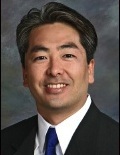 Al Muratsuchi is running for the Assembly in a new district that includes most of the South Bay and Palos Verdes Peninsula. Muratsuchi supports Sierra Club positions on important environmental issues, including renewable energy, water supply, and clean oceans. For more information, see his Website at alfor assembly.com.
Al Muratsuchi is running for the Assembly in a new district that includes most of the South Bay and Palos Verdes Peninsula. Muratsuchi supports Sierra Club positions on important environmental issues, including renewable energy, water supply, and clean oceans. For more information, see his Website at alfor assembly.com.
“As a surfer with a deep passion for the ocean since my childhood days (and as a former Torrance Environmental Quality and Energy Conservation Commissioner), I will fight to advance the goals of clean coastal waters and beaches, healthy ocean and coastal habitats, and sustainable economic development of coastal communities,” he says.
State Senate
Fran Pavley
27th State Senate District
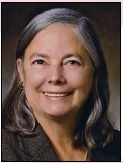 The Sierra Club again has endorsed the re-election of State Senator Fran Pavley, a world leader in energy conservation who has earned international acclaim as the author of AB 1493, the landmark California emissions reduction law, (often known as the “Pavley Law”), which forms the basis for increased fuel efficiency standards in the U.S and Canada.
The Sierra Club again has endorsed the re-election of State Senator Fran Pavley, a world leader in energy conservation who has earned international acclaim as the author of AB 1493, the landmark California emissions reduction law, (often known as the “Pavley Law”), which forms the basis for increased fuel efficiency standards in the U.S and Canada.
Pavley also co-authored AB 32, the “greenhouse gas law”, plus legislation designed to reduce public exposure to dangerous toxics such as lead, mercury, and cadmium, and has authored an environmental education initiative to bring environmental principles into California textbooks.
As chair of the State Senate’s Natural Resources and Water Committee, Pavley has played the lead role in obtaining the funds needed to purchase Ahmanson Ranch and King Gillette Ranch, the latter being the location of the new visitor center for the Santa Monica Mountains National Recreation Area. She was also instrumental in the purchases of Happy Camp, Towsley Canyon, and the Backbone Trail, and is a strong advocate for cleanup of the Santa Susana Field Lab.
The district includes Malibu and parts of Ventura County.
U.S. Congress
Lee Rogers
25th Congressional District
 Lee Rogers is a podiatrist who specializes in preventing amputations in diabetes. He is a national health expert and lectures all over the world on topics related to diabetes, complications from the disease and health policy. Lee lives in Simi Valley with his wife and two daughters.
Lee Rogers is a podiatrist who specializes in preventing amputations in diabetes. He is a national health expert and lectures all over the world on topics related to diabetes, complications from the disease and health policy. Lee lives in Simi Valley with his wife and two daughters.
“I’m running for Congress because we’re not being represented in Washington,” Lee says. “While filling their campaign coffers with special interest money, Congress has irresponsibly spent our money and racked up our country’s largest debt. This has got to stop! We need a Congress that responds to the people. My opponent, Congressman Buck McKeon, has ignored the needs of people here in the district. My top priorities will be addressing these needs, including major actions needed to keep our environment clean and safe.”
California’s 25th District, which includes Santa Clarita and Palmdale, is facing three major environmental issues as a result of federal contracts or on federal land that are being ignored by incumbent McKeon. First, contamination from a munitions manufacturing plant operated by Whittaker-Bermite is in the center of Santa Clarita. This plant has polluted the groundwater with perchlorate and the plume of contamination is spreading. The topsoil is contaminated with volatile organic compounds. Clean up is underway, but slowly.
Second, the Santa Susana Field Laboratory operated by Rocketdyne now owned by Boeing is located in the Simi Hills. Contamination by Rocketdyne and a reactor meltdown has left radioactive pollution and other chemicals on the site. The federal government and Boeing are supposed to clean up the site, however Boeing is challenging their responsibility in the cleanup. McKeon is a top recipient of campaign contributions from Boeing and unlikely to bring in federal help to force Boeing to take responsibility. Lee Rogers will be a champion for these environmental issues, a stark contrast to his opponent.
Brad Sherman vs. Howard Berman
30th Congressional District
The Chapter is making no endorsement in this race. The campaign for this San Fernando Valley district has been fierce as two politicians who have both been endorsed by the Chapter in the past are now vying for a single congressional seat. Both have had good environmental records during their terms in Congress.
Henry Waxman
33rd Congressional District
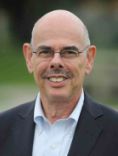 The Sierra Club strongly endorses Henry Waxman for Congress because he is a nationally-known leader on environmental issues. The air we breathe, the water we drink, and the food we eat are all safer because of his leadership in Congress. Waxman was one of the primary authors of the 1990 Clean Air Act Amendments. Tens of thousands of American lives are saved every year by this law, which significantly reduces toxic air pollution. Waxman sponsored the 1986 and 1996 Safe Drinking Water Act Amendments, which keep dangerous pollutants out of our drinking water.
The Sierra Club strongly endorses Henry Waxman for Congress because he is a nationally-known leader on environmental issues. The air we breathe, the water we drink, and the food we eat are all safer because of his leadership in Congress. Waxman was one of the primary authors of the 1990 Clean Air Act Amendments. Tens of thousands of American lives are saved every year by this law, which significantly reduces toxic air pollution. Waxman sponsored the 1986 and 1996 Safe Drinking Water Act Amendments, which keep dangerous pollutants out of our drinking water.
Waxman provided leadership to establish the Food Quality Act of 1996, which outlaws the most dangerous pesticides from being used on our food. Waxman introduced the first bill in Congress to stop global warming in 1992, and spearheaded passage by the House of Representatives of the American Clean Energy and Security Act of 2009 (also known as the Waxman-Markey Anti-Global Warming Bill). Climate change is an environmental issue. It is an economic issue. But it is also fundamentally a moral issue. We need to pass along to our children a world that is livable. Congressman Waxman has worked with leaders of both political parties to forge compromises and get bipartisan support for these important laws.
Sukhee Kang
45th Congressional District
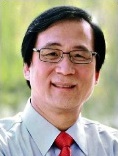 Sukhee Kang is the current mayor of Irvine, who has been elected to this post twice. Kang previously served on the Irvine City Council. He was endorsed by the Sierra Club in all three elections and has supported pro-environmental actions in the city, including long-term sustainability of the city’s shuttle system, development of an inventory of the city’s greenhouse gas emissions and energy footprint, and promoting environmentally-friendly construction. Over the past two years, Kang has been meeting with the FBI as they take over an area near the Great Park that has a shooting range and has asked them to keep the surrounding land in a natural state. Kang is a strong supporter of alternative, renewable energy, and drives a fuel cell demo car that is loaned to the city of Irvine. Recently, he led the successful effort for Irvine to go on record with the Nuclear Regulatory Commission to ensure that San Onofre Nuclear Generating Station is completely safe before allowing it to be restarted. His successful efforts to build a coalition of all council members on this issue were noteworthy. Kang brings a pragmatic approach to environmental concern, and would be a strong advocate for the Sierra Club’s mission if elected to represent the district that includes Irvine.
Sukhee Kang is the current mayor of Irvine, who has been elected to this post twice. Kang previously served on the Irvine City Council. He was endorsed by the Sierra Club in all three elections and has supported pro-environmental actions in the city, including long-term sustainability of the city’s shuttle system, development of an inventory of the city’s greenhouse gas emissions and energy footprint, and promoting environmentally-friendly construction. Over the past two years, Kang has been meeting with the FBI as they take over an area near the Great Park that has a shooting range and has asked them to keep the surrounding land in a natural state. Kang is a strong supporter of alternative, renewable energy, and drives a fuel cell demo car that is loaned to the city of Irvine. Recently, he led the successful effort for Irvine to go on record with the Nuclear Regulatory Commission to ensure that San Onofre Nuclear Generating Station is completely safe before allowing it to be restarted. His successful efforts to build a coalition of all council members on this issue were noteworthy. Kang brings a pragmatic approach to environmental concern, and would be a strong advocate for the Sierra Club’s mission if elected to represent the district that includes Irvine.
Loretta Sanchez
46th Congressional District
 Congresswoman Loretta Sanchez, candidate for re-election to Congress in the 46th District, has been a strong advocate of environmental issues since she was first elected to the House of Representatives in 1995. Throughout her legislative career, Sanchez has worked with colleagues from both sides of the aisle to craft legislation that is environmentally friendly and calls on companies to demonstrate accountability for their business practices.
Congresswoman Loretta Sanchez, candidate for re-election to Congress in the 46th District, has been a strong advocate of environmental issues since she was first elected to the House of Representatives in 1995. Throughout her legislative career, Sanchez has worked with colleagues from both sides of the aisle to craft legislation that is environmentally friendly and calls on companies to demonstrate accountability for their business practices.
She has co-sponsored legislation that protects some of our most vulnerable species. Sanchez is an original co-sponsor of H.R.4122, the Big Cats and Public Safety Protection Act, and she has been instrumental in bringing national attention to the issue. She will continue to fight in Congress and she will continue to confront any administration, regardless of party lines, to ensure that priceless lands like the Grand Canyon are protected from toxics due to mining. Sanchez will continue to build on her environmental record by supporting legislation that will improve emission standards, reduce our dependence on foreign oil, improve water quality, and clean up toxic waste sites.
Alan Lowenthal
47th Congressional District
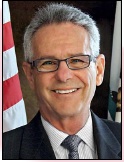 Alan Lowenthal is a candidate for the House of Representatives in the newly drawn 47th District, which encompasses southern coastal Los Angeles County and a portion of Orange County. He is a dedicated spokesman for environmental issues. Lowenthal has been a champion for the environment for more than 20 years, first as a Long Beach city councilman, then as a California Assembly member, and now as a state senator. Ever since he authored legislation that covered the petroleum coke piles at the Port of Long Beach (AB 1775) that reduced harmful airborne particulate matter, Lowenthal has been fighting relentlessly for a greener port, cleaner air and water, and a protected coastline for all Californians.
Alan Lowenthal is a candidate for the House of Representatives in the newly drawn 47th District, which encompasses southern coastal Los Angeles County and a portion of Orange County. He is a dedicated spokesman for environmental issues. Lowenthal has been a champion for the environment for more than 20 years, first as a Long Beach city councilman, then as a California Assembly member, and now as a state senator. Ever since he authored legislation that covered the petroleum coke piles at the Port of Long Beach (AB 1775) that reduced harmful airborne particulate matter, Lowenthal has been fighting relentlessly for a greener port, cleaner air and water, and a protected coastline for all Californians.
As a state senator, he had a 71% rating on the Sierra Club California 2011 scorecard, an 88% on the California League of Conservation Voters scorecard, and a 96% lifetime rating. The Chapter has a long history of support for Lowenthal, and has endorsed him in all of his previous campaigns beginning in 1992. He is a past winner of the Angeles Chapter Brian Sher Award, and the Political Committee’s 2012 Political Leadership Award. Lowenthal is focused on proving that environmental stewardship and economic development are not mutually exclusive, and will provide a credible voice for Sierra Club concerns in Washington, D.C.
California State Propositions
This new revenue will help close a state budget gap and ensure that certain programs, especially education, will continue to be funded. Looking only at the environmental issues in question, the volunteer-driven Sierra Club California’s leadership voted to support Proposition 30 based on two main reasons.
First, without Proposition 30, the 2012/2013 state budget will be $6 billion short. That means a series of “trigger” cuts will go into effect. Among those are serious cuts to
environmental agencies and agency services. “Without the Proposition 30 revenues, in the very near term, environmental programs will suffer,” said Kathryn Phillips, director of Sierra Club California. “As much as $28 million could be cut right away from programs that affect environmental quality.”
Additionally, without Proposition 30 and the possibility of additional revenues it promises for at least 7 years, the legislature and the governor will continue to be trapped in a cycle of deep budget cuts every year. This has direct fallout for the environment. For instance, environmental programs and agencies will continue to suffer cuts and agencies will not be able to do the work needed to meet California’s environmental protection goals.
It also has indirect fallout for the environment. “In recent years we’ve watched some legislators who don’t care about the environment—and the polluting industries who support such legislators—use the budget gap as an argument for rolling back environmental protections,” said Phillips. “If proposition 30 fails, those arguments will continue and Californians will face greater threats to air and water, and to the natural areas we all cherish for recreation and wildlife habitat.” - By Kathryn Phillips, Director, Sierra Club California




Add new comment